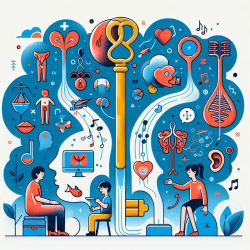Understanding the Impact of Relationships on Adolescent Mental Health
Adolescence is a critical period marked by significant emotional and social development. During this time, relationships with parents and friends play a pivotal role in shaping mental health outcomes. Recent research titled "Intra- and Inter-Individual Differences in Adolescent Depressive Mood: the Role of Relationships with Parents and Friends" provides valuable insights into how these relationships influence depressive moods among adolescents.
The Study at a Glance
The study utilized data from 1,126 Dutch adolescents, examining how the quality of relationships with parents and friends affects depressive mood. The researchers explored both intra-individual (within the same adolescent over time) and inter-individual (differences between adolescents) variations in depressive mood.
Key Findings
- Protective and Risk Factors: Both parent and friend relationships have protective (satisfaction) and risk (conflict) aspects that significantly impact depressive mood.
- Compensation Model: At the intra-individual level, supportive friendships can compensate for poor parent-adolescent relationships, highlighting the importance of fostering positive friendships.
- Additive Model: At the inter-individual level, low conflict in both parent and friend relationships is crucial for minimizing depressive mood, emphasizing the need for harmonious relationships in both contexts.
Implications for Practitioners
Practitioners working with adolescents can leverage these findings to enhance mental health interventions. Here are some actionable strategies:
- Focus on Relationship Quality: Encourage adolescents to cultivate high-quality relationships with both parents and friends. This can be achieved through communication skills training and conflict resolution workshops.
- Intervene at Multiple Levels: Address both intra- and inter-individual factors by tailoring interventions to improve relationship satisfaction and reduce conflict in both parental and peer contexts.
- Promote Social Support: Develop programs that enhance adolescents' social support networks, providing them with alternative sources of emotional support.
Further Research and Exploration
While this study offers significant insights, further research is needed to explore the nuances of these relationships. Practitioners are encouraged to delve deeper into the dynamics of adolescent relationships and their impact on mental health.
To read the original research paper, please follow this link: Intra- and Inter-Individual Differences in Adolescent Depressive Mood: the Role of Relationships with Parents and Friends.










